What is Informatics?
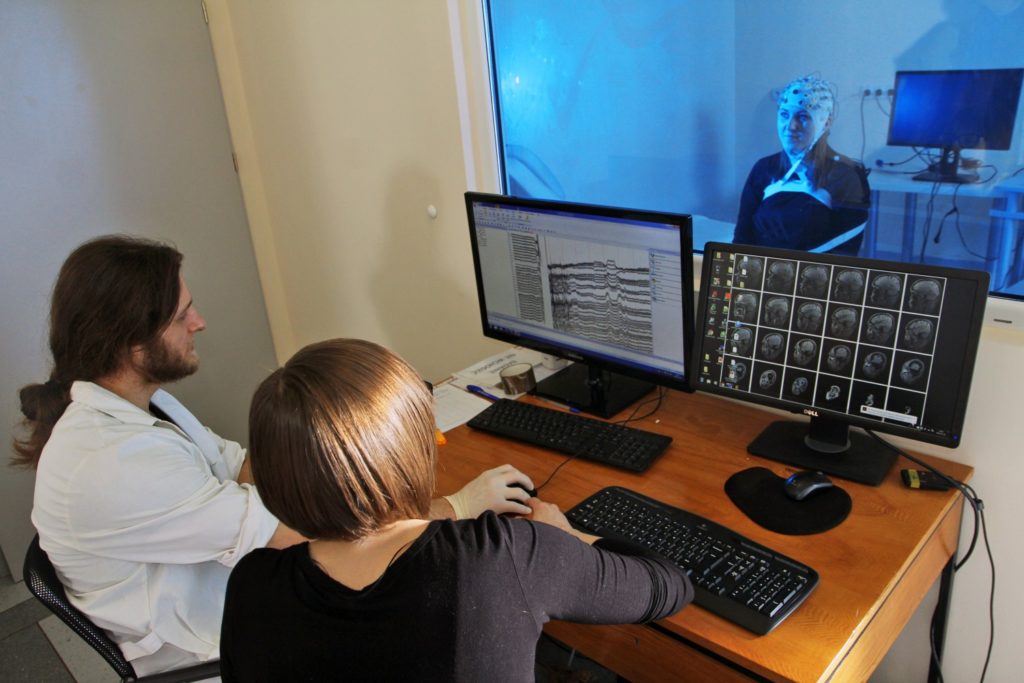
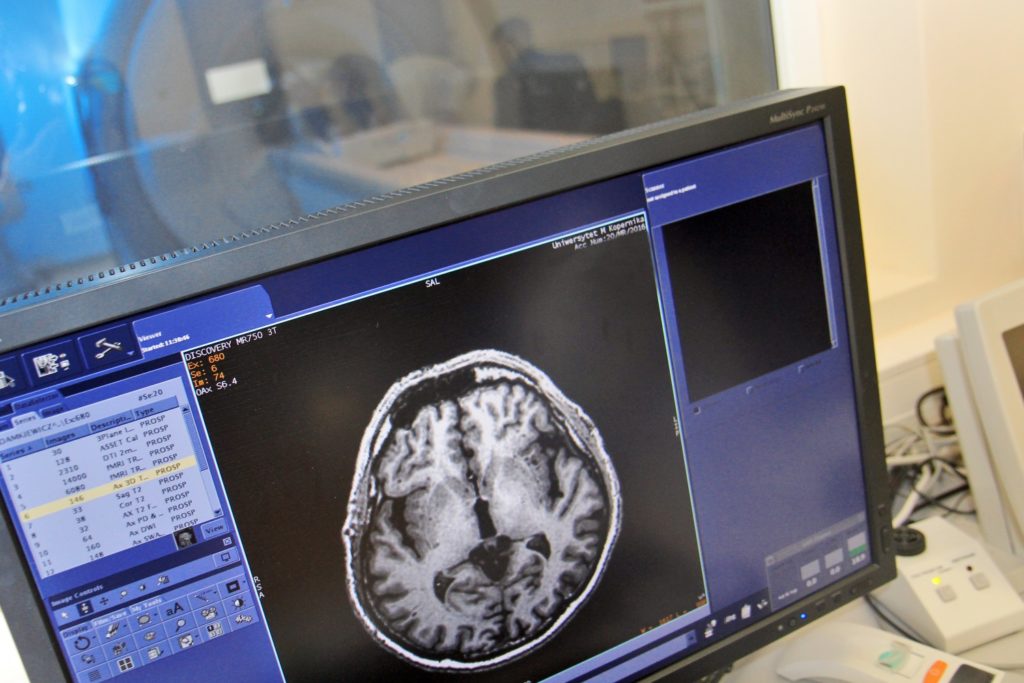 Informatics combines theoretical and practical knowledge. You will study various programming languages, advanced UNIX/Linux and IT system administration. We will teach you how to create professional websites using the latest web technologies. In the second year of your studies, you will already learn 3D graphics and game programming using specialized Unity engines! Moreover, we will introduce you to modern algorithms and methods of artificial intelligence and computational intelligence. You will learn about data mining and big data, what neural networks can be used for, and deep learning.
Informatics combines theoretical and practical knowledge. You will study various programming languages, advanced UNIX/Linux and IT system administration. We will teach you how to create professional websites using the latest web technologies. In the second year of your studies, you will already learn 3D graphics and game programming using specialized Unity engines! Moreover, we will introduce you to modern algorithms and methods of artificial intelligence and computational intelligence. You will learn about data mining and big data, what neural networks can be used for, and deep learning.
Why study Informatics at our Faculty
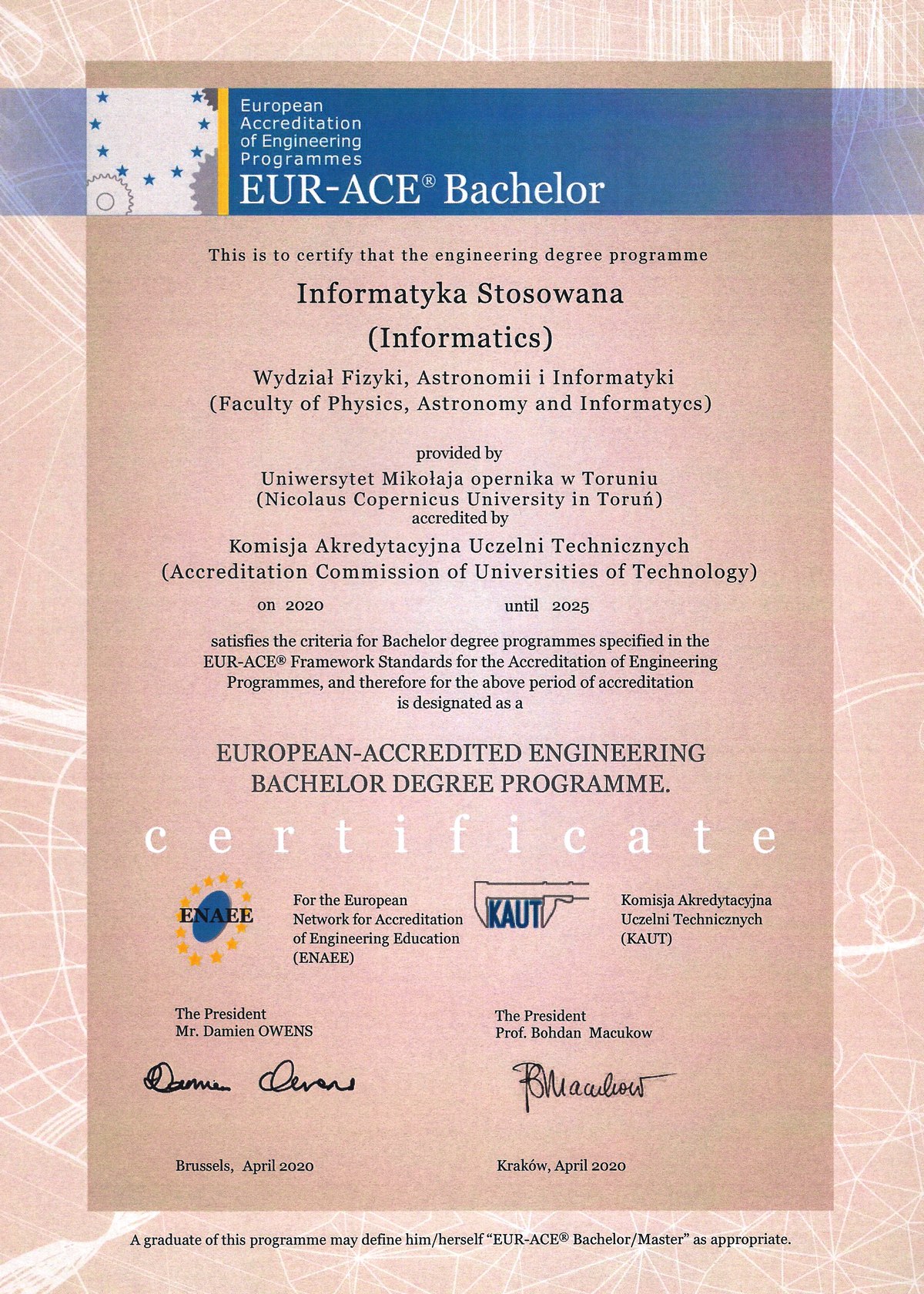
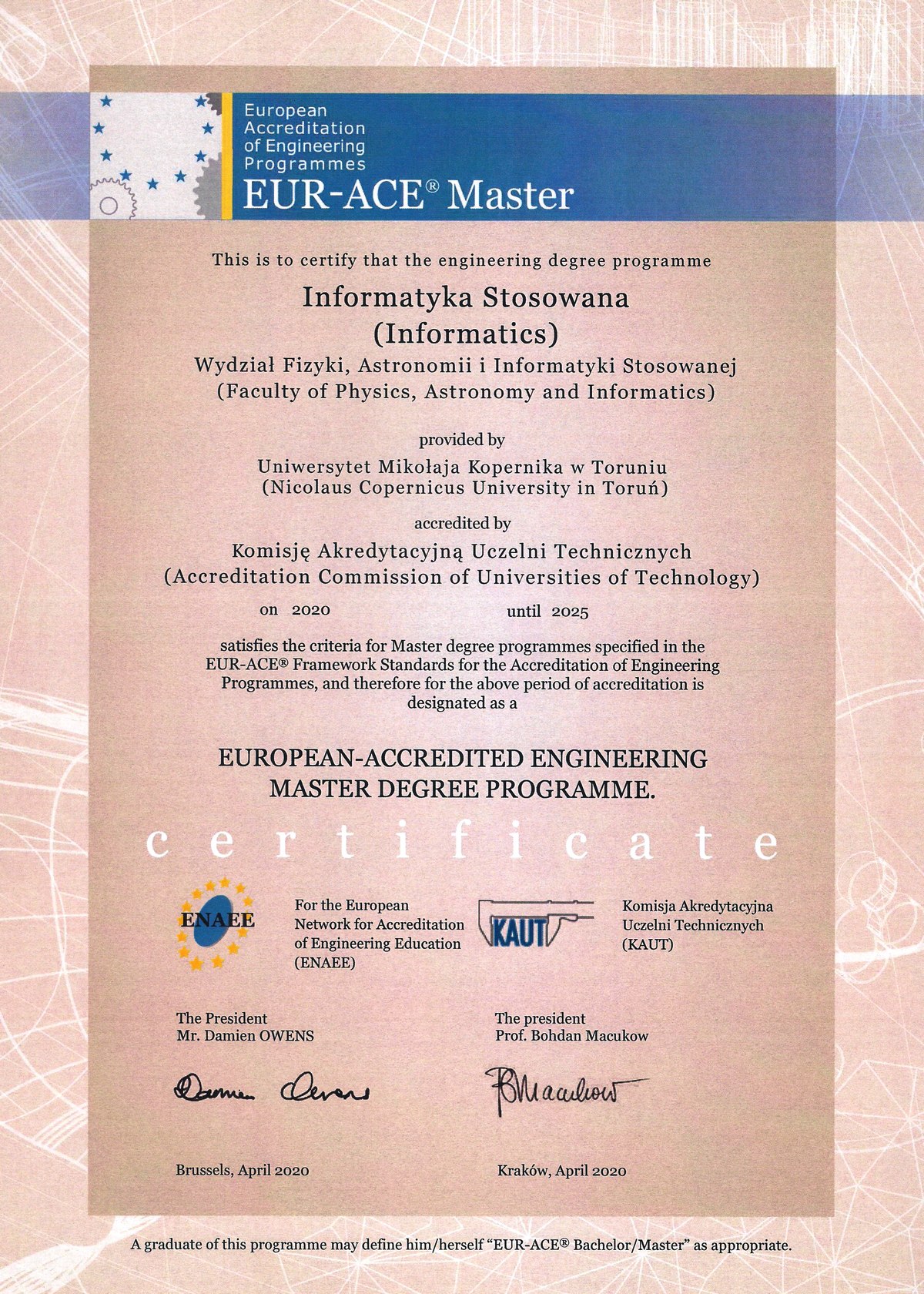 Studies in Informatics (first and second degree) are accredited by the Accreditation Commission of Universities of Technology and the European Network for Accreditation of Engineering Education(ENAEE). Under the European accreditation of the EUR-ACE Label, graduates with the degree diploma receive a corresponding English certificate indicating that they meet the ENAEE European standards. This means that degrees in technical physics are recognised throughout Europe.
Studies in Informatics (first and second degree) are accredited by the Accreditation Commission of Universities of Technology and the European Network for Accreditation of Engineering Education(ENAEE). Under the European accreditation of the EUR-ACE Label, graduates with the degree diploma receive a corresponding English certificate indicating that they meet the ENAEE European standards. This means that degrees in technical physics are recognised throughout Europe.
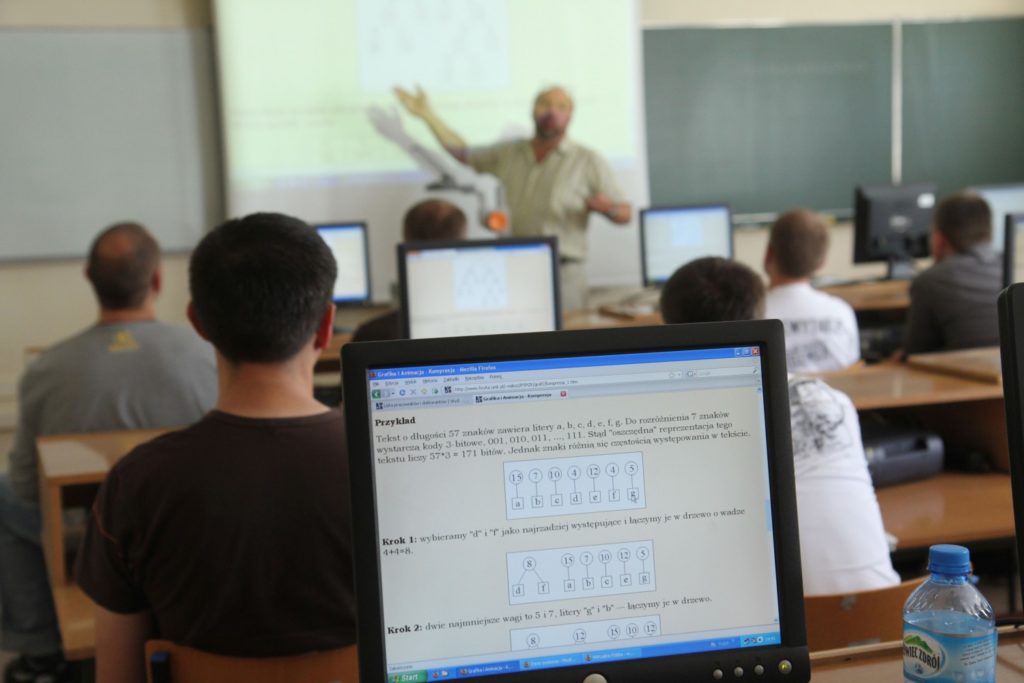
Our specialisation is computational intelligence, machine learning and data analysis. Our study programme includes classes related to neural networks, data analysis, agent systems and expert systems. We also teach databases and effective modelling and data processing. We program in a Windows environment and teach team programming.
After the first year, we award Microsoft certificates already, and employees of well-known IT companies teach some classes.For years we have been operating as Cisco Academy, and we cooperate with Linux Professional Institute. Students take part in certified expert courses, e.g. Cisco CCNA Routing&Switching and Introduction to Cybersecurity or Fortinet in the field of wireless networks and security.
Students can create their engineering and master theses by combining informatics with physics, automation, robotics or cognitive science, joining the research work of various scientific teams.
What to do after graduation
Applied computer science gives you endless opportunities, and we list just a few here:
- programmer and web developer,
- IT systems administrator,
- network technology specialist,
- programmer and game designer,
- developer of mobile applications programmer and administrator of databases and cloud solutions,
- computer software designer,
- designer of decision-making and expert systems,
- designer of robot control systems,
- computer systems engineer,
- bioinformatician.
Neurocognitive and Data Science
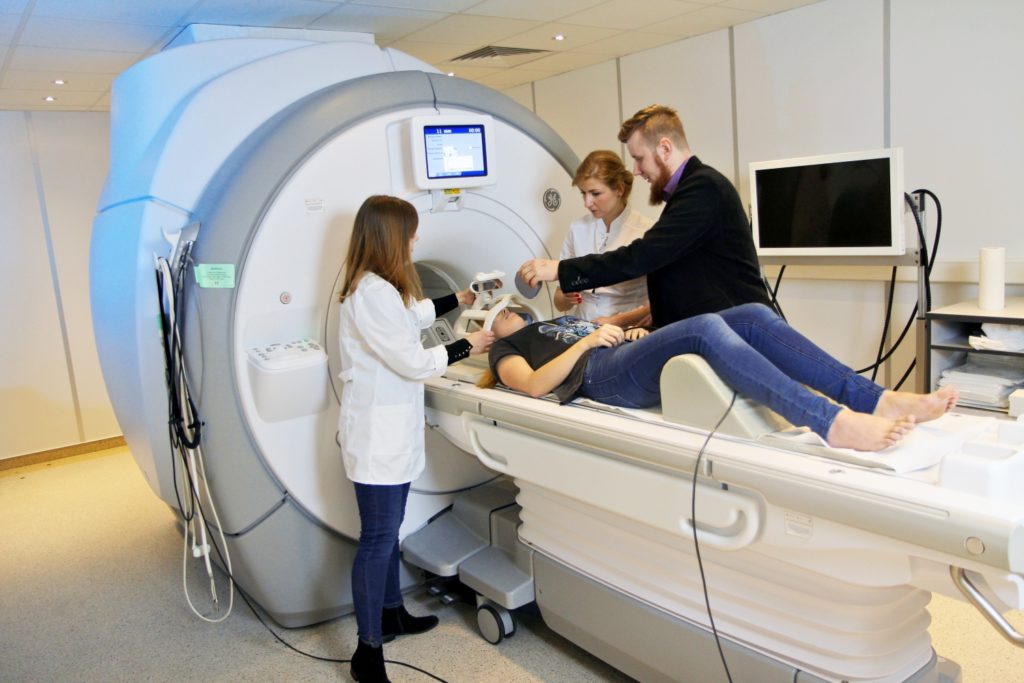 We are versatile and open-minded. We excel at cooperating with humanists, developing new interdisciplinary fields of research and commercialising the results of our work. Together with researchers from the Faculty of Humanities, we established the Polish Cognitive Science Association; in interdisciplinary teams, we study the relationship between the functioning of brains and minds and develop new therapeutic games. We have developed the only Polish-made commercial data mining package, GhostMiner for Fujitsu.
We are versatile and open-minded. We excel at cooperating with humanists, developing new interdisciplinary fields of research and commercialising the results of our work. Together with researchers from the Faculty of Humanities, we established the Polish Cognitive Science Association; in interdisciplinary teams, we study the relationship between the functioning of brains and minds and develop new therapeutic games. We have developed the only Polish-made commercial data mining package, GhostMiner for Fujitsu.
Neuromania Shoes
Programme was written by Dr Michał Meina, an employee of the Department of Informatics
Kujawsko-Pomorskie Cyber Security Forum 2019
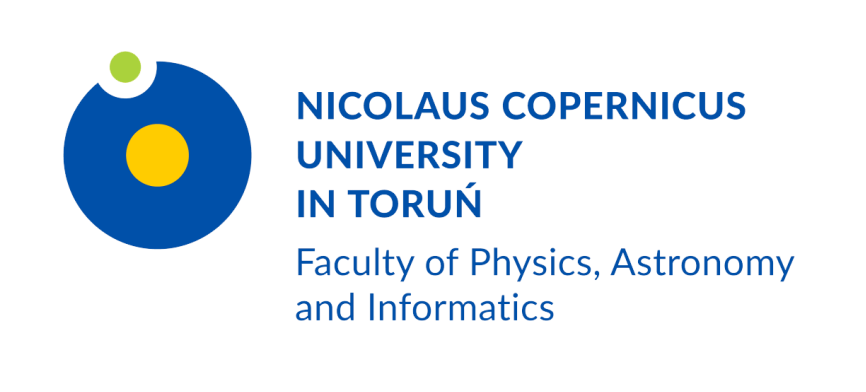
 ul. Wileńska 7, 87-100 Toruń
ul. Wileńska 7, 87-100 Toruń